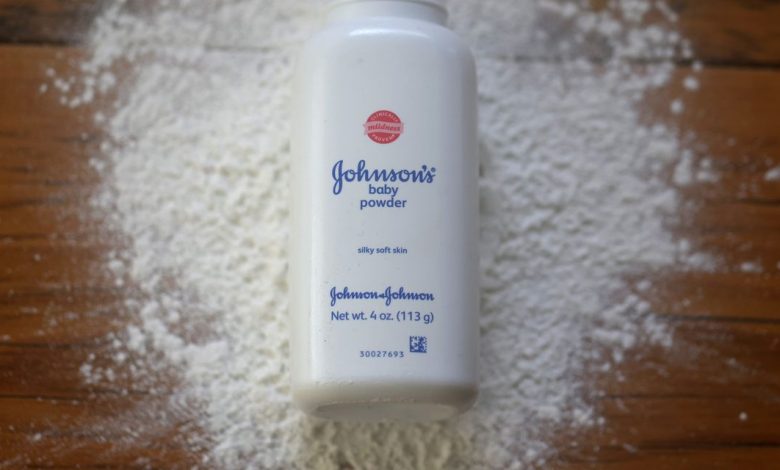Johnson & Johnson swings to loss as it books multibillion-dollar charge to settle talc claims

[ad_1]
Johnson & Johnson’s stock reversed early gains to trade down 2% Tuesday, after the company swung to a first-quarter loss as it booked a multibillion-dollar charge to settle lawsuits stemming from its talc-containing powders.
The loss came even as the consumer health and pharmaceutical company beat consensus estimates for the period, raised its full-year guidance and boosted its quarterly dividend by 5.3%.
The company
JNJ,
posted a loss of $68 million, or 3 cents a share, for the quarter, after income of $5.149 billion, or $1.93 a share, in the year-earlier period. The loss was due to a $6.9 billion one-time litigation charge relating to lawsuits filed by people alleging the company’s talc-containing powders caused cancers, asbestos poisoning and other illnesses. The company has offered to pay at least $8.9 billion to settle the suits, and remove an overhang on the stock.
For more, see: J&J’s proposal to settle talc lawsuits for $8.9 billion sends stock up the most in more than a year
Excluding that charge and costs related to the planned spinoff of its consumer group, the company’s adjusted earnings per share came to $2.68, ahead of the $2.50 FactSet consensus.
Sales rose 5.6% to $24.746 billion from $23.426 billion a year ago, also ahead of the FactSet consensus, which had foreseen revenue of $23.599 billion.
Sales rose at the company’s three business segments. Consumer health sales were up 7.4% to $3.852 billion, pharmaceutical sales rose 4.2% to $13.413 billion, and medtech sales were up 7.3% to $7.481 billion.
As happened in the fourth quarter, sales of over-the-counter products Tylenol and Motrin boosted consumer health sales, along with Imodium in digestive health and products to help consumers quit smoking.
See also: J&J: ‘Tripledemic’ fueled demand for Motrin and Tylenol
“JNJ performed impressively across all of its major franchises with consumer health delivering stand-out results,” said Lee Brown, global sector lead for healthcare at investment research company Third Bridge, who made the comment based on insights gleaned from interviews with executives in the sector.
In pharmaceutical, sales were boosted by Darzalex, a biologic used to treat multiple myeloma; Stelara, a biologic targeting immune-mediated inflammatory diseases; and Erelada, a treatment for prostate cancer, among others.
Stelara sales rose 6.8% to $2.4 billion. J&J is expecting its U.S. composition of matter patent to expire late in the third quarter or in the fourth quarter of 2023, but for now, no biosimilars have been approved, Chief Financial Officer Joseph Wolk told analysts on the earnings call, according to a FactSet transcript.
Darzalex sales rose 22% to $2.264 billion and Erleada sales rose 36.5% to $542 million.
In medtech, sales were boosted by electrophysiology products in
interventional solutions, contact lenses in vision, wound-closure products in general surgery, and knees in orthopedics. The company said the $16.6 billion acquisition of Abiomed in November bolstered growth.
The company is now expecting its full-year sales to range from $97.9 billion to $98.9 billion, up from January guidance of $96.9 billion to $97.9 billion. It expects adjusted EPS will range from $10.60 to $10.70 versus January guidance of $10.45 to $10.65.
And the board approved an increase in the quarterly dividend to $1.19 a share from $1.13, with the new dividend payable June 6 to shareholders of record as of May 23.
J&J’s stock enjoyed the strongest gains in more than a year in early April when it announced the plan to settle the talc suits. On the company’s earnings call, it said it has the support of 60,000 claimants and expects to complete a proposed reorganization plan to present to a bankruptcy court in mid-May.
The stock has fallen 8.5% to date in 2023, while the Dow Jones Industrial Average
DJIA,
has gained 2.5%.
[ad_2]
Source link



